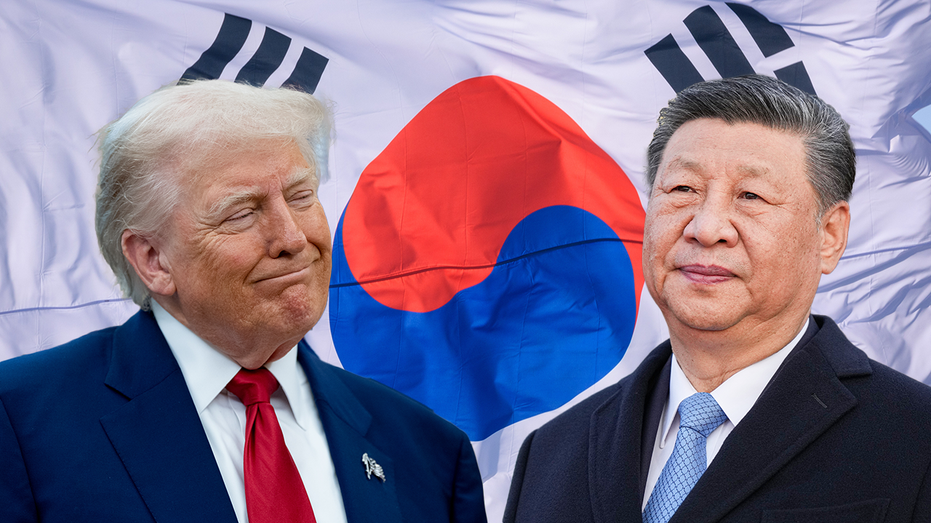South Korea's Crucial Election Amid Rising Tensions with China, North Korea, and the US
South Korea's upcoming election intensifies debate over Lee Jae-myung's stance on U.S.-China relations, underscoring the race's geopolitical significance.

South Korean voters flocked to early polling stations this week in unprecedented numbers, highlighting the intense interest and widespread stakes in the upcoming June 3 presidential election. This historic turnout comes at a time when the country faces rising regional threats from China and new uncertainties in its alliance with the United States, stemming from recent tariff policies introduced by President Donald Trump.
The progressive Democratic Party's candidate, Lee Jae-myung, has emerged as the frontrunner in the highly charged race. His campaign has energized supporters but also sparked controversy for advocating a "pragmatic" approach to foreign affairs—one that contrasts sharply with his predecessor’s more hardline stance against Beijing. Lee has called for recalibrating South Korea’s regional posture, suggesting that the country should ease its hawkish positions on China and gradually reduce its reliance on the United States.
“The alliance with the U.S. is the foundation of South Korea’s diplomacy,” Lee insisted during a nationally televised debate earlier this month. However, he also argued that Seoul cannot remain “unilaterally bound” to Washington, especially with escalating U.S.-China tensions. He emphasized the necessity of maintaining effective relations with both China and Russia, stating, “There’s no need to have an unnecessarily hostile approach like now.”
Tensions over foreign policy have become the defining issue of the race, especially after the impeachment of conservative former President Yoon Suk Yeol in December 2024 plunged the nation into political uncertainty. Yoon had staunchly aligned South Korea with the United States, confronting Chinese activities in contested waters of the Yellow Sea and East China Sea, where Beijing stands accused of militarizing disputes and restricting navigation.
Lee’s chief rival, Kim Moon-soo of the conservative People Power Party (PPP), has seized on these shifting alliances to question Lee’s commitment to national security and the country’s longstanding partnership with the U.S. Kim has warned that diluting South Korea’s pro-American orientation risks emboldening regional adversaries and undermining deterrence, particularly in the face of North Korean provocations and Chinese expansionism.
Though Lee has dismissed these accusations, reaffirming the critical importance of the South Korea-U.S. alliance, he has not shied away from criticizing recent American policy moves. He cited Trump administration decisions such as the imposition of 25% tariffs and hints at potential troop withdrawals, arguing these steps have “eroded” trust and softened American influence in Asia. “If the U.S. continues this way—eroding its soft power and the trust of other nations—it won’t be sustainable. At some point, brakes will be applied. Until then, endurance is key,” Lee remarked during the debate.
This nuanced platform has garnered mixed reactions among South Koreans and from international observers. Some, like former California Congresswoman Michelle Steel, herself Korean-born, maintain that South Korea has no choice but to deepen ties with Washington. “China poses the biggest threat,” she said, warning of Beijing’s ambitions beyond Taiwan and questioning what countries may be in the crosshairs next.
Meanwhile, critics allege that Lee’s approach risks exposing South Korea to greater pressure by regional powers. David Eunkoo Kim, founder of the conservative Truth Forum, described the election as pivotal for South Korea, with “extraordinarily high” stakes. He accused Lee of having longstanding ties to both pro-North Korean and pro-Chinese interests and referenced Lee’s indictment over alleged illegal cash transfers to North Korea—a charge Lee vigorously denies, dismissing it as politically motivated.
Amid the debate, North Korea’s renewed military activity—including recent ballistic missile tests and a failed destroyer launch—has injected further urgency into the election. Lee’s opponents portray him as a “North Korea risk” and express unease about his commitment to deterrence. Lee, for his part, has countered that a peaceful diplomatic strategy is the best way to ease cross-border tensions, but criticism over his legal troubles and alleged vulnerability to Chinese influence continues to follow him.
As Election Day approaches, the nation finds itself at a crossroads. South Korean voters are keenly aware that their decision could determine the direction of national policy—in both domestic governance and the region’s rapidly evolving geopolitical order—for years to come.




